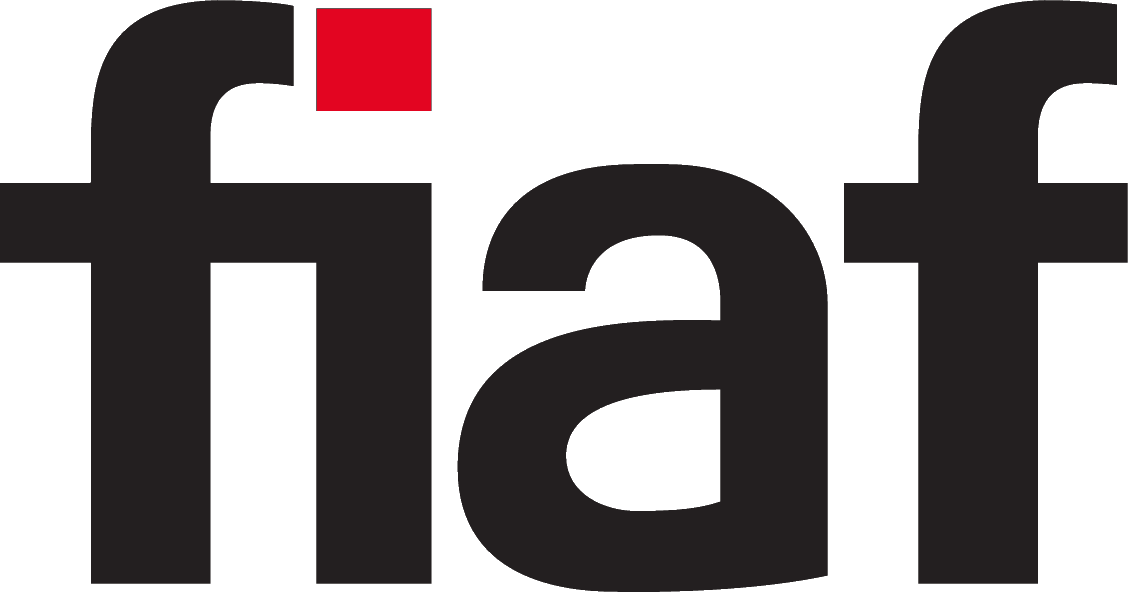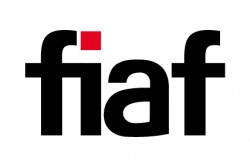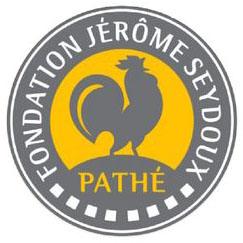 2020 FIAF/Cinémathèque Programming Winter School at the Cinémathèque française. © FIAF
2020 FIAF/Cinémathèque Programming Winter School at the Cinémathèque française. © FIAF
Day 1: Monday 28 March 2022, Fondation Jérôme Seydoux-Pathé
Jour 1 : lundi 28 mars, Fondation Jérôme Seydoux-Pathé
09:00
Welcome of the Participants
Accueil des participants
09:30
Opening of the 7th Winter School and Introduction to the Course
Ouverture de la 7e Winter School et présentation du cours
 Screening at the Cinématèque universitaire en 2019 / Projection à la Cinémathèque universitaire en 2019.
Screening at the Cinématèque universitaire en 2019 / Projection à la Cinémathèque universitaire en 2019.
09:45
Programming Film Heritage for Students / Teaching Film Heritage Programming at University (I)
Programmer le patrimoine cinématographique pour les publics étudiants / Enseigner la programmation de films de patrimoine à l’université (I)
10:45
Coffee Break
Pause café
11:15
Programming Film Heritage for Students / Teaching Film Heritage Programming at University (II)
Programmer le patrimoine cinématographique pour les publics étudiants / Enseigner la programmation de films de patrimoine à l’université (II)
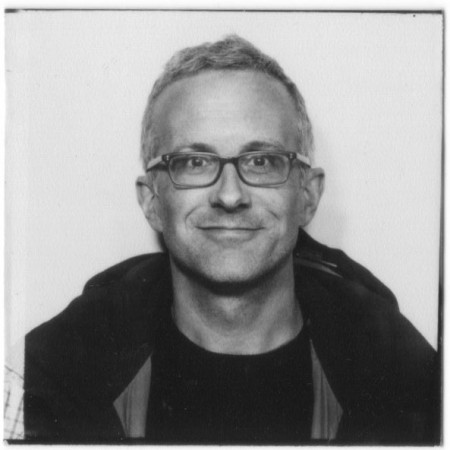
Brian Meacham
Brian Meacham is the Managing Archivist of the Yale Film Archive, where he has worked since 2013. He oversees acquisition, inspection, cataloguing, and preservation of the film collection, which includes more than 8,000 print and pre-print elements acquired by the university over the last 50 years. He helped launch and is co-programmer of the archive’s public screening series, Treasures from the Yale Film Archive, which has screened dozens of 35mm and 16mm prints from the archive’s collection since it began in 2014. He teaches the theory and practice of the film archive as a lecturer in the Yale Film and Media Studies Program. Prior to coming to Yale, he worked as a film preservationist at the Academy Film Archive in Los Angeles. Since 2015, he has represented Associate archives on FIAF’s Executive Committee, and is a member of FIAF's Programming and Access to Collections Commission (PACC).
Brian Meacham est l'archiviste-en-chef de la Yale Film Archive, où il travaille depuis 2013. Il supervise l'acquisition, l'inspection, le catalogage et la préservation de la collection de films, qui comprend plus de 8 000 éléments imprimés et préimprimés acquis par l'université au cours des 50 dernières années. Il a contribué au lancement et est co-programmateur de la série de projections publiques des archives, Treasures from the Yale Film Archive, qui a projeté des dizaines de copies 35 mm et 16 mm de la collection des archives depuis son lancement en 2014. Il enseigne la théorie et la pratique de l'archive cinématographique en tant que conférencier dans le programme d'études cinématographiques et médiatiques de Yale. Avant de venir à Yale, il a travaillé en tant que conservateur de films à l'Academy Film Archive de Los Angeles. Depuis 2015, il représente les archives associées au comité directeur de la FIAF, et est membre de la commission de programmation et d'accès aux collections (PACC) de la FIAF.
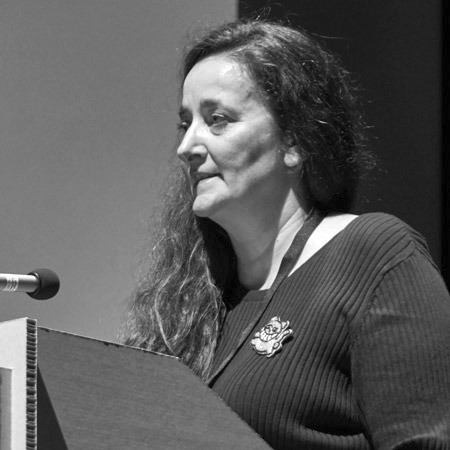
Laure Gaudenzi
Laure Gaudenzi works for students and teacher-researchers at the university Sorbonne Nouvelle in Paris, which has employed her since 1991 to extend the activities of the Cinémathèque universitaire from one student generation to the next. Notably, she programmes ten weekly screenings for Sorbonne Nouvelle audiences of titles from the collection of 16mm and 35mm films of the Cinémathèque universitaire, an association created in 1973 within the university Panthéon Sorbonne.
Laure Gaudenzi travaille au service des étudiants et des enseignants chercheurs à la Sorbonne Nouvelle à Paris, qui l'emploie depuis 1991 pour prolonger les activités de la Cinémathèque universitaire d'une génération étudiante à la suivante. Notamment, elle programme pour le public de la Sorbonne Nouvelle, au rythme de dix séances hebdomadaires, les titres issus de la collection de pellicules 16 mm et 35 mm de la Cinémathèque universitaire, association créée en 1973 au sein de l'université Panthéon Sorbonne.
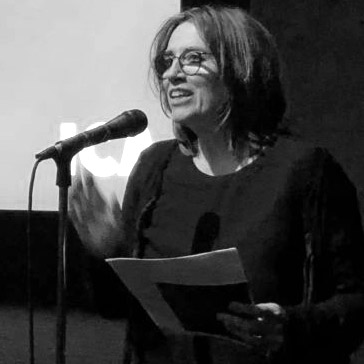
Janet McCabe
Dr. Janet McCabe is Reader in Television and Film Studies at Birkbeck, University of London, where she is also the programme director of MA Film Programming and Curating, one of the first MAs of its kind in the UK. The MA is a practice-led research course, and includes an emphasis on the exhibition of archives. McCabe is part of the curating collective of Birkbeck’s Essay Film Festival, where her research and programming engage with archival resources related to marginal voices, both in film (female film collectives) and television (European public service broadcasters).
Janet McCabe est maîtresse de conférences en études cinématographiques et télévisuelles à Birkbeck, University of London, où elle est également directrice du programme MA Film Programming and Curating, l'un des premiers MA de ce type au Royaume-Uni. Ce master est un cours de recherche axé sur la pratique et met l'accent sur “l'exposition” des archives. Mme McCabe fait partie du collectif de commissaires de l’Essay Film Festival, où ses recherches et sa programmation portent sur les ressources archivistiques liées aux voix marginales, tant dans le domaine du cinéma (collectifs de films féminins) que de la télévision (radiodiffuseurs de service public européens).
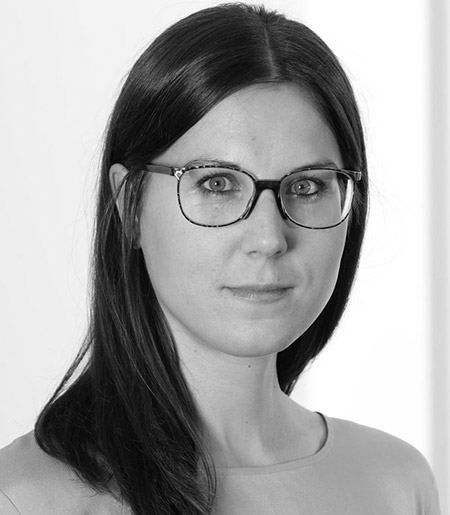
Ines Bayer
Dr. Ines Bayer is responsible for university cooperations at the DFF – Deutsches Filminstitut & Filmmuseum, in particular for the M.A. program "Film Culture: Archiving, Programming, Presentation", which the DFF has been offering in partnership with Goethe University Frankfurt since 2013. She has also directed various curatorial projects for the DFF, most recently the digital platform FILM HISTORY RHIZOME. She has acted as editor for several publications, including Beloved and Rejected. Cinema in the Young Federal Republic of Germany, which appeared in 2016. She holds a PhD in Film Studies from the University of Mainz, where she specialized in Film and Theater Studies from 2007 to 2012.
Dr. Ines Bayer est responsable des coopérations universitaires au DFF - Deutsches Filminstitut & Filmmuseum, en particulier pour le programme de Master "Film Culture: Archiving, Programming, Presentation" que l'Institut propose en collaboration avec l'université Goethe de Francfort depuis 2013. Pour le DFF, elle a également dirigé divers projets de conservation, dont le plus récent est la plateforme numérique FILM HISTORY RHIZOME. Elle a dirigé plusieurs publications, notamment Beloved and Rejected. Cinema in the Young Federal Republic of Germany publiée en 2016. Elle est titulaire d'un doctorat en études cinématographiques de l'Université de Mayence, où elle a étudié les études cinématographiques et théâtrales de 2007 à 2012.
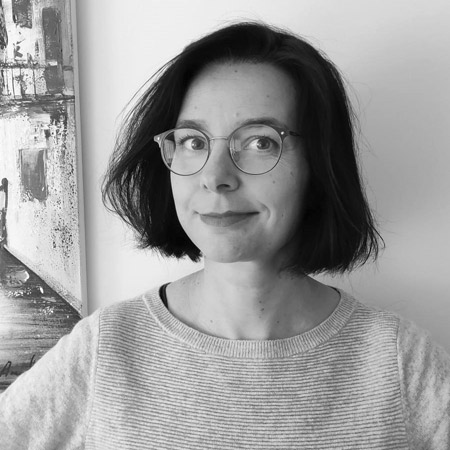
Mélissa Gignac
Mélissa Gignac is a lecturer in film studies at the University of Lille and a researcher at the Centre d'Étude des Arts Contemporains. She recently co-edited a collective volume, Le scénario: une source pour l'Histoire du cinéma (AFRHC, 2020), as well as a special issue of the revue Déméter on "Fantasmes du cinéma américain en France" (2020). She taught a workshop on film programming at the University of Lille from 2015 to 2019, and has attended several editions of FIAF's Winter School on Programming Film Heritage.
Mélissa Gignac est maître de conférences en études cinématographiques à l’Université de Lille, chercheuse au Centre d’Étude des Arts Contemporains. Elle a récemment co-dirigé un ouvrage collectif, Le scénario : une source pour l’Histoire du cinéma (AFRHC, 2020) ainsi qu’un numéro spécial de la Revue Déméter : « Fantasmes du cinéma américain en France » (2020). Elle a enseigné un atelier sur la programmation de cinéma à l'Université de Lille de 2015 à 2019 et a suivi pendant plusieurs années la Winter School de programmation du patrimoine cinématographique de la FIAF.
12:30
Portraits of Historical Programmers (1): João Bénard da Costa
Portraits de programmateurs historiques (1): João Bénard da Costa
His passionate way of seeing films moved his way of showing, talking, and writing about films in particular, as well as film as an art among other arts. His work affected generations of Portuguese cinephiles and moviegoers. A truly unique film programmer and writer, João Bénard da Costa (1935-2009) started his career in the cine-clubs of the 1950s; he was a seminal programmer in Lisbon and eventually the head of the Cinemateca Portuguesa (1991-2009). As Duarte de Almeida, he was an actor for, among other directors, Manoel de Oliveira, whose cinema he defended continually. His friend Peter von Bagh described him as someone who “made cinema a unique, inexplicably beautiful phenomenon”: “He represented what was most worthy in everything in film criticism, programming, creating film events – with an overwhelming presence both at home, in everything that mattered most in Portuguese film culture, as well as internationally.”
Sa manière passionnée de voir les films a déplacé sa façon de montrer, de parler et d'écrire sur les films en particulier et sur le cinéma comme un art parmi d'autres. Il a marqué des générations de cinéphiles et de cinéphiles portugais. Programmateur et écrivain de cinéma singulier, João Bénard da Costa (1935-2009) a débuté dans les ciné-clubs dans les années 1950 ; il a été un programmateur phare à Lisbonne et le directeur de la Cinemateca Portuguesa (1991-2009). Sous le nom de Duarte de Almeida, il a été l'acteur, entre autres, de Manoel de Oliveira, dont il a continuellement défendu le cinéma. Son ami Peter von Bagh l'a dépeint comme quelqu'un qui "a fait du cinéma un phénomène unique, inexplicablement beau" : "Il représentait ce qu'il y avait de plus digne dans tout ce qui était critique de cinéma, programmation, création d'événements cinématographiques - avec une présence écrasante aussi bien chez lui, dans tout ce qui comptait le plus dans la culture cinématographique portugaise, qu'à l'international."
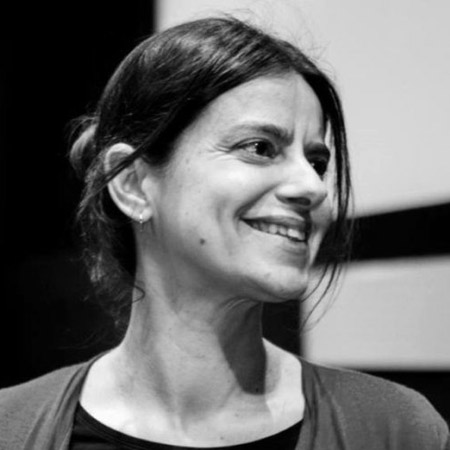
Maria João Madeira
Maria João Madeira works as a programmer at the Cinemateca Portuguesa-Museu do Cinema in Lisbon, where she is involved in the the conception and organization of seasons and retrospectives, as well as the production of texts and catalogues. Having graduated in Communication, she previously worked at the Cinemateca’s archive, and before that that as a radio journalist. She also has experience in translation, mainly in subtitling films.
Maria João Madeira travaille comme programmatrice à la Cinemateca Portuguesa-Museu do Cinema à Lisbonne, où elle est impliquée dans conception et l'organisation de cycles et de rétrospectives, mais aussi la production de textes et de catalogues. Diplômée en communication, elle a précédemment travaillé aux archives de la Cinémathèque et, avant cela, comme journaliste radio. Elle a de l'expérience en traduction, principalement dans le sous-titrage de films.
13:00
Lunch at the Fondation Jérôme Seydoux-Pathé
Déjeuner à la Fondation Jérôme Seydoux-Pathé
 Courtesy of Jean-Pierre Verscheure
Courtesy of Jean-Pierre Verscheure
14:30
Programming Film on Film in the Digital Era
Programmer les supports argentiques à l’ère du numérique
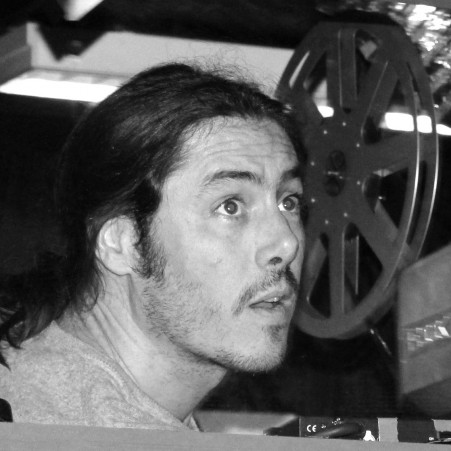
Benoît Carpentier
Benoît Carpentier has been president and curator of Cinémathèque16 since 2017. In order to preserve and programme Cinémathèque16's collection of 16mm films, he has focused his research on the history of the format and its use in France, especially its key periods: non-commercial exploitation 1928-1939; exploitation under the German Occupation between 1942 and 1945; the beginning of commercial exploitation by the American majors from 1945 onwards; and non-commercial exploitation by France’s Ciné-Club Federations from 1950 onwards. The results of this research are regularly presented at conferences, as well as lectures preceding the screening of films in original prints.
Benoît Carpentier est président et curateur à Cinémathèque16 depuis 2017. Afin de pouvoir conserver et programmer la collection de films 16 mm de Cinémathèque16, il oriente ses recherches vers l’histoire du format et ses usages en France, et plus particulièrement ses périodes clefs: l’exploitation non commerciale de 1928 à 1939, l’exploitation sous occupation allemande entre 1942 et 1945, le début de l’exploitation commerciale du format par les majors américaines à partir de 1945 et l’exploitation non commerciale des Fédérations de Ciné-Clubs à partir de 1950.
Les résultats des recherches sont régulièrement présentés lors de conférences et interventions précédant la projection des films en copies originales.

Jean-Pierre Verscheure
Born in Brussels in 1952, Jean-Pierre Verscheure discovered cinema at the time of widescreen, 70mm, Technicolor, and stereophonic sound, well before the arrival of Dolby. It was during this rich and dynamic period in the evolution of cinema presentation that he decided to dedicate himself to the study of the archaeological history of the “Seventh Art”. In order to pursue and extend his research, he decided to collect period equipment that would allow the rediscovery of works in their original formats. Professor at the Institut National Supérieur des Arts du Spectacle (INSAS) in Brussels since 1977, in 1994 he founded a study and research centre on the evolution of the technology of cinema, Cinévolution, bringing together more than 700 pieces of equipment and more than 4500 films made in a multitude of formats. He has given numerous courses and lectures throughout the world. He currently provides technical support for the monthly screenings of "Club 35" at the Palace cinema in Brussels, where he talks about the specificities of print and projection formats on stage.
Né à Bruxelles en 1952, Jean-Pierre Verscheure découvre le cinéma à l’époque de l’écran large, du 70mm, du Technicolor et déjà du son stéréophonique bien avant l’arrivée du Dolby. C’est durant cette période riche et dynamique de l’évolution du spectacle cinématographique qu’il prend la décision de se destiner à l’étude de l’histoire archéologique de l’histoire du 7ème art. Afin de poursuivre et d’étendre ses recherches, il décide de collectionner les équipements d’époque qui permettent la redécouverte des œuvres dans leur forme originelle. Professeur à l’Institut National Supérieur des Arts du Spectacle (INSAS) à Bruxelles depuis 1977, il fonde en 1994 un centre d’études et de recherches sur l’évolution du spectacle cinématographique, Cinévolution, regroupant plus de 700 appareils et plus de 4500 films réalisés dans une multitude de format. Il a donné de nombreux cours et conférences dans le monde entier. Il apporte actuellement un soutien technique aux projections mensuelles du « Club 35 » du cinéma le Palace à Bruxelles, où il évoque sur scène les spécificités de la copie et du format de projection.
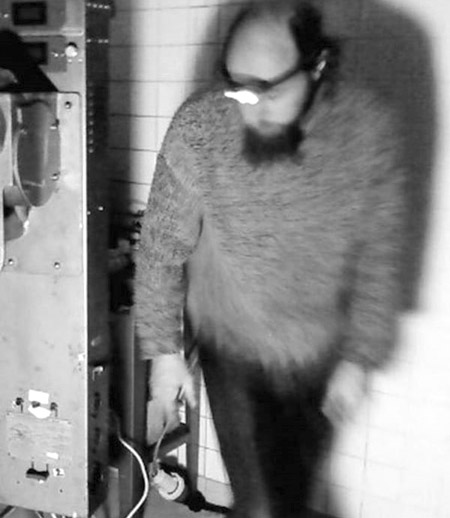
Nicolas Rey
Nicolas Rey is a filmmaker and one of the founders of L'Abominable, a shared photochemical laboratory that has been active in the filmlabs.org network since 1996. Today, L'Abominable is about to create the Navire Argo (navireargo.org), which will combine this laboratory with a public screening room dedicated to film projection, on the site of the former Eclair laboratories. He was also one of the initiators of the filmprojection21.org website, defending the continuing use of the film medium in projection.
Nicolas Rey est cinéaste, il fait partie des fondateurs de L’Abominable, un laboratoire photochimique partagé actif depuis 1996 dans le réseau filmlabs.org. Aujourd’hui, L’Abominable est sur le point de créer le Navire Argo (navireargo.org), qui combinera ce laboratoire avec une salle de projection publique dédiée à la projection en argentique, sur le site des anciens laboratoires Eclair. Il a également été un des initiateurs du site filmprojection21.org défendant la pérennité de l’utilisation du support film en projection.

Brian Meacham
See biography above / Voir biographie plus haut
16:00
Coffee Break
Pause café
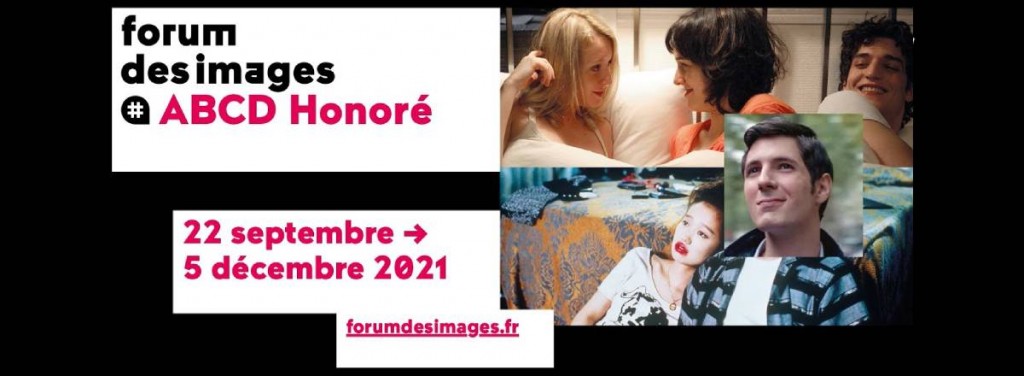
16:30
Filmmakers as Programmers (1): "ABCD Honoré" - 100 Screenings Conceived by Christophe Honoré at the Forum des images (Paris)
Cinéastes programmateurs (1): "ABCD Honoré"- 100 séances imaginées par Christophe Honoré au Forum des images (Paris)
In the autumn of 2021, the Forum des Images asked film director Christophe Honoré to take over its programming to explore his artistic gesture in a different form. This programme of 100 screenings, conceived as a kind of ABC, was in keeping with his autobiographical vein, while inventing a kind of romantic epistemology, passionately examining the reasons of the heart and the follies of the body.
A l’automne 2021, le Forum des images à Paris a proposé au cinéaste Christophe Honoré de s’emparer de sa programmation pour explorer, sous une autre forme, son geste artistique. Ce programme en 100 séances, conçu comme un abécédaire, s’est inscrit dans sa veine autobiographique tout en inventant une sorte d’épistémologie romantique, examinant avec passion les raisons du cœur et les déraisons du corps.
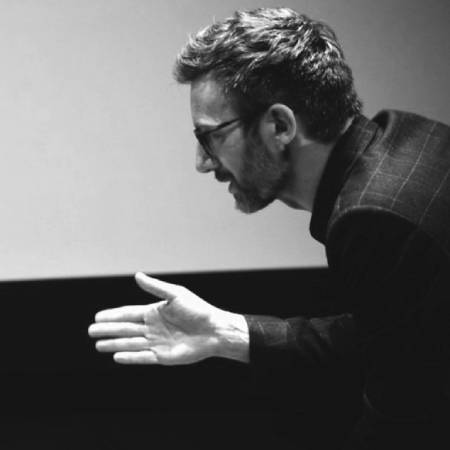
Fabien Gaffez & Christophe Honoré
Fabien Gaffez est le directeur des programmes au Forum des images à Paris depuis 2016. Diplômé de philosophie, écrivain et critique de cinéma (notamment pour la revue Positif), Fabien Gaffez a enseigné l’histoire et l’esthétique du cinéma à l’université de Picardie Jules Verne, et a été le directeur du Festival international du film d'Amiens de 2011 à 2016.
Fabien Gaffez has been the director of programmes at the Forum des images in Paris since 2016. A philosophy graduate, writer and film critic (notably for the magazine Positif), Fabien Gaffez taught the history and aesthetics of cinema at the University of Picardie Jules Verne, and was from 2011-2016 the director of the Amiens International Film Festival.
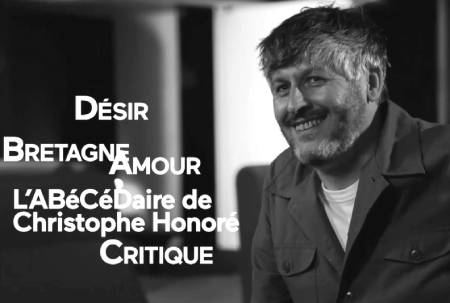
To be confirmed:
Christophe Honoré is a French writer, film and stage director, and screenwriter. He has directed twelve feature films, including Les Chansons d'amour (2007), Les Bien-aimés (2011), and Plaire, aimer et courir vite (2018), for which he won the Louis-Delluc Prize. His latest film is Guermantes (2021).
Sous réserve:
Christophe Honoré est un écrivain, réalisateur, scénariste, et metteur en scène français. Auteurs de nombreux romans jeunesse, il a réalisé réalisé douze longs-métrages dont Les Chansons d'amour (2007), Les Bien-aimés (2011) et Plaire, aimer et courir vite (2018) pour lequel il remporte le prix Louis-Delluc. Son derneir film est Guermantes (2021).
 Detail of a frame of the 16mm print of Scarface preserved by the Cinémathèque 16
Detail of a frame of the 16mm print of Scarface preserved by the Cinémathèque 16
17:15
Lecture on a Rare Version of Scarface
Conférence sur une version rare de Scarface
The end of the first day of this year’s Winter School offers an opportunity to discover one of the rarities of the Cinémathèque16 collection, a completely forgotten version of Howard Hawks' classic Scarface (1932).
The advent of talking pictures did not mean that silent versions of certain films with sound did not exist. This print of Scarface survives without a soundtrack, but with intertitles and editing specific to this little-known version, which is unique and yet perfectly coherent, both in terms of narration and staging.
So what does the existence of such a print tell us… about the history of cinema? About the spectator's memory? About the uniqueness of the work? About the aesthetic experience? About the distribution of films? For a programmer of archival films, ethical and even epistemological questions also arise: what kind of cinema memory do we want to build? How can we explore the margins of our collections? This illustrated lecture will describe the origins and history of this vintage print.
La fin de la première journée de cette Winter School 2022 est l’occasion de découvrir une des raretés de la collection de Cinémathèque16, une version totalement oubliée du classique de Howard Hawks, Scarface (1932).
L’avènement du cinéma parlant ne saurait occulter totalement l’existence de versions muettes de certains films sonores, c'est ainsi que survit cette copie de Scarface, sans piste son mais avec des intertitres et un montage propres à cette version méconnue, singulière et pourtant parfaitement cohérente, tant en matière de narration que de mise en scène.
Dès lors, que nous dit l’existence d’une telle copie ? Sur l’histoire du cinéma ? Sur la mémoire spectatorielle ? Sur l’unicité de l'œuvre ? Sur l’expérience esthétique ? Sur la distribution des films ? Pour un programmateur d'archives se poseront en plus des questionnements éthiques voir épistémologiques : quelle mémoire du cinéma voulons-nous construire ? Comment explorer les marges de nos collections ? Cette conférence illustrée décrira les origines et l'histoire de cette copie ancienne.

Benoît Carpentier
See biography above / Voir biographie plus haut
19:00
End of the First Day
Fin de la première jounée
Day 2: Tuesday 29 March 2022, Cinémathèque française
Jour 2 : mardi 29 mars, Cinémathèque française
09:30
Welcome of the Participants
Accueil des participants
10:00
Online Communication Strategies to Promote Film Heritage Programmes
Stratégies de communication en ligne pour promouvoir les programmes de films du patrimoine
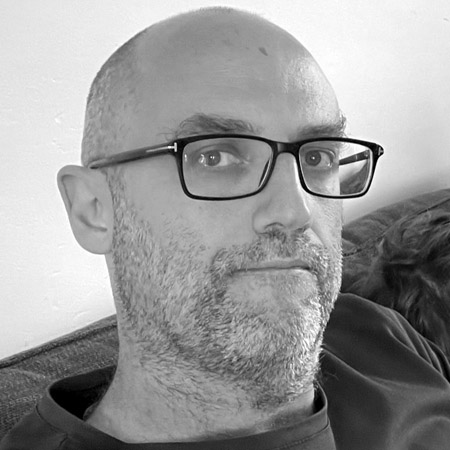
Xavier Jamet & Mélanie Haoun
Xavier Jamet is Director of Web and Publications at the Cinémathèque française. He holds a Master's degree in Multimedia and Digital Images and is the co-founder of Dvdclassik, a webzine devoted to heritage cinema, which he edited from 2002 to 2007. He was a regular contributor to Soap magazine, dedicated to television series. In charge of the web activities of the Cinémathèque française since 2007, he has coordinated the various redesigns of its website, initiated the systematic posting of its cultural actions online (i.e., some 950 videos and podcasts), and supervised the progressive deployment of the structure on Facebook, Twitter, Instagram, Vimeo, and TikTok. Since 2019, he has been overseeing the editorial consistency of the Cinémathèque, not only on its website and social networks, but also its paper publications.
Xavier Jamet est Directeur du Web et des Publications à la Cinémathèque française. Titulaire d'un Master Multimédia et Images numériques, il est le co-fondateur de Dvdclassik, webzine consacré au cinéma de patrimoine dont il a assuré la rédaction en chef de 2002 à 2007. Il a été un contributeur régulier du magazine Soap, consacré aux séries télévisées. En charge du web à la Cinémathèque française depuis 2007, il a notamment coordonné les différentes refontes de son site internet, initié la mise en ligne systématique de ses actions culturelles, soit quelques 950 vidéos et podcasts, ou encore supervisé le déploiement progressif de la structure sur Facebook, Twitter, Instagram, Vimeo et TikTok. Depuis 2019, il veille à la cohérence éditoriale de la Cinémathèque, non seulement sur son site et ses réseaux sociaux, mais aussi ses publications papier.
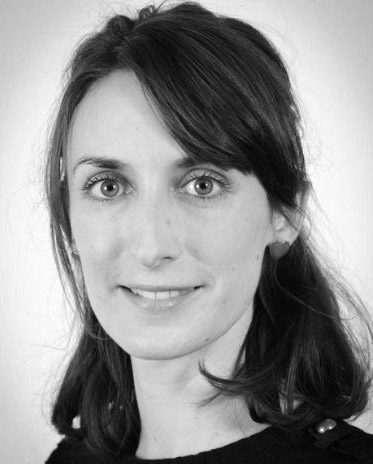
Mélanie Haoun is assistant to the Director of Web and Publications at the Cinémathèque française. She is a graduate of the Institut d'Études Politiques de Toulouse, in the field of communication and media, and holds a Master's degree in Cultural Engineering. She has been responsible for publications at the Cinémathèque française since 2010. She participated in the redesign of the institution's graphic identity and communication in collaboration with the firm Intégral Ruedi Baur (2005) and the agency BETC (2016). Since 2019, she has also been in charge of the storytelling and development strategy of the Cinémathèque française on Instagram, and TikTok, and on its newsletter.
Mélanie Haoun est adjointe au directeur du Web et des Publications à la Cinémathèque française. Elle est diplômée de l’Institut d’Études Politiques de Toulouse, filière communication & médias, et titulaire d'un Master en Ingénierie culturelle. Elle est en charge des Publications de la Cinémathèque française depuis 2010. Elle a participé à la refonte de l’identité graphique et de la communication de l’institution en collaboration avec le cabinet Intégral Ruedi Baur (2005) et l’agence BETC (2016). Depuis 2019, elle est également en charge du storytelling et de la stratégie de développement de la Cinémathèque française sur Instagram, TikTok et sur sa newsletter.

Alex Prideaux
Alex Prideaux is a marketing advisor at the British Film Institute (BFI) working on campaigns related to the organisation’s cultural programme. Following a Masters degree in Film Studies from the University of Kent, he embarked on a career in arts marketing, first working with the Philharmonia Orchestra before joining the BFI in 2014. At the BFI he has led and supported on a range of projects including theatrical releases, Blu-rays, the relaunch of Sight and Sound magazine and BFI National Archive-related activities. Campaign highlights include the release of the BFI restoration of Abel Gance’s Napoleon in 2016, the multi-platform 2018 celebration of Woodfall Films and a programme of activity marking the 75th anniversary of the Central Office of Information in 2021. He is also a freelance writer and is currently studying for a Masters in Curating Collections and Heritage from the University of Brighton.
Alex Prideaux est conseiller en marketing au British Film Institute (BFI) et travaille sur des campagnes liées au programme culturel de l'organisation. Après avoir obtenu un master en études cinématographiques à l'Université du Kent, il s'est lancé dans une carrière dans le marketing artistique, travaillant d'abord avec le Philharmonia Orchestra avant de rejoindre le BFI en 2014. Au BFI, il a dirigé et soutenu une série de projets, notamment des sorties en salles, des Blu-ray, le nouveau lancement du magazine Sight and Sound et des activités liées aux archives du BFI. Les points forts de la campagne comprennent la sortie de la restauration par le BFI de Napoléon d'Abel Gance en 2016, la célébration multiplateforme 2018 de Woodfall Films et un programme d'activités marquant le 75e anniversaire du Central Office of Information en 2021. Il est également écrivain indépendant et prépare actuellement un master en conservation des collections et du patrimoine à l'université de Brighton.
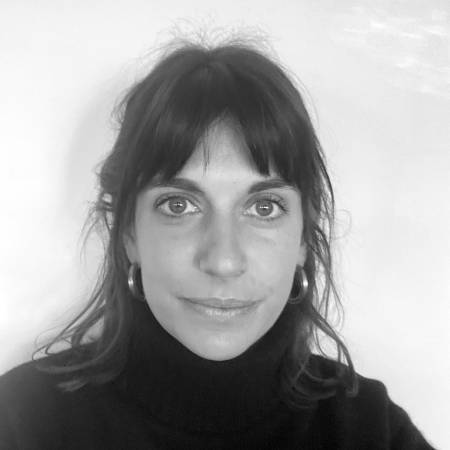
Catherine Muller
Catherine Muller is responsible for new media and print publications at the Cinémathèque suisse. After earning a Master's degree in History and Aesthetics of Cinema at the University of Lausanne, she worked for several years in film production. In 2017 she joined the communication team of the Cinémathèque suisse, where she is in charge of the digital strategy of the institution and its editorial content on social networks. She is also in charge of the Swiss Cinémathèque's website, and is currently working on its redesign. At the same time, she supervises the coordination of printed material related to the promotion of the Cinémathèque suisse’s film programmes.
Catherine Muller est responsable des nouveaux médias et des imprimés à la Cinémathèque suisse. Après un Master en Histoire et esthétique du cinéma à l’Université de Lausanne, elle travaille quelques années dans la production de films. En 2017 elle intègre l’équipe de communication de la Cinémathèque suisse où elle s’occupe de la stratégie digitale de l’institution et de son contenu éditorial sur les réseaux sociaux. Elle est également en charge du site internet de la Cinémathèque suisse et travaille actuellement à son projet de refonte. En parallèle, elle supervise la coordination des imprimés liés à la communication autour de la programmation de la Cinémathèque suisse.
11:15
Coffee Break
Pause café
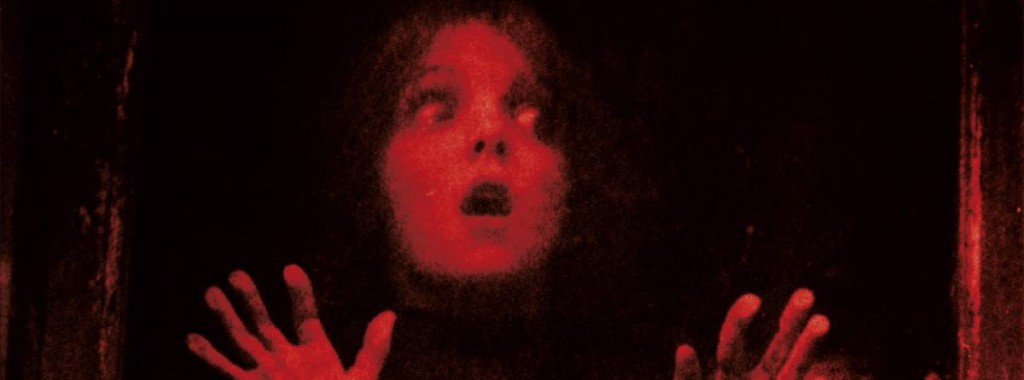 Promotional material for the 2022 edition of the Extreme Cinema festival at the Cinémathèque de Toulouse.
Promotional material for the 2022 edition of the Extreme Cinema festival at the Cinémathèque de Toulouse.
11:45
Programming B-Movies
Programmer le cinéma bis

Jean-François Rauger
Jean-François Rauger is the director of programming at the Cinémathèque française. He is a regular contributor to the newspaper Le Monde. He is the author of L'Œil domestique - Alfred Hitchcock et la télévision (Éditions Rouge Profond) and contributed to the book Hitchcock: La Totale (Editions E/P/A). He has also published a collection of his own writings from various sources, L'Œil qui jouit (Éditions Yellow Now). He opened up the Cinémathèque's programming to a certain type of cinema sometimes neglected by institutional critics – ‘genre’ cinema – by organizing screenings of double bills on Friday evenings at the Cinémathèque, and by programming a number of retrospectives (Jess Franco, Mario Bava, Terence Fisher...).
Jean-François Rauger est le directeur de la programmation de La Cinémathèque française. Il collabore régulièrement au journal Le Monde. Il est également l’auteur de L’Œil domestique − Alfred Hitchcock et la télévision (Éditions Rouge Profond) ainsi que d’un recueil de textes, L’Œil qui jouit (Éditions Yellow Now). Il a participé à l’ouvrage Hitchcock : La Totale (éditions E/P/A). Il a ouvert la programmation de la Cinémathèque à un certain cinéma, dit de genre, parfois négligé par la critique institutionnelle, notamment lors de séances à double programme le vendredi soir à la Cinémathèque, voire en organisant des rétrospectives (Jess Franco, Mario Bava, Terence Fisher…).
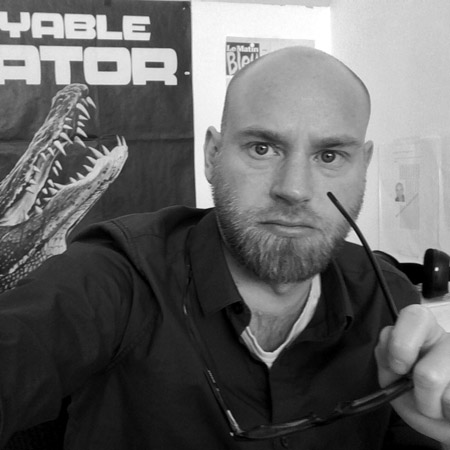
Franck Lubet
A specialist in nothing in this period of experts in everything, since 2015 Franck Lubet has been in charge of programming at the Cinémathèque de Toulouse, an institution he joined at the end of the 1990s. Since 2001, he has been organizing the Extrême Cinéma festival (created in 1999 by Franck Priot and Alex Masson) with Frédéric Thibaut.
Spécialiste de rien en cette période d'experts de tout, Franck Lubet dirige la programmation de La Cinémathèque de Toulouse depuis 2015, institution qu'il a intégrée à la fin des années 1990. Depuis 2001, il organise avec Frédéric Thibaut le festival Extrême Cinéma (festival créé en 1999 par Franck Priot et Alex Masson).
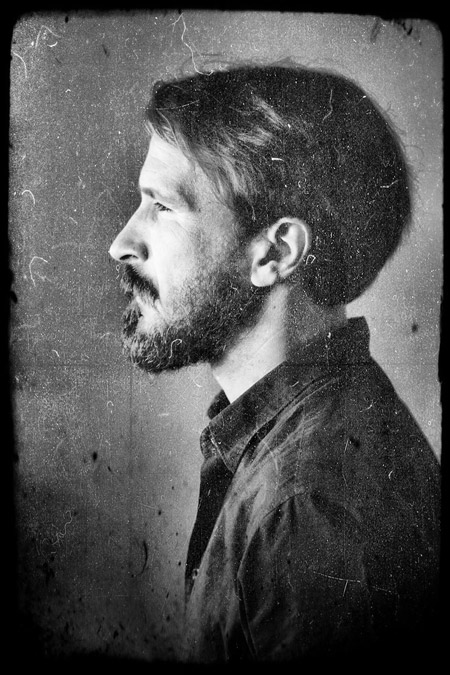
Emmanuel Rossi
For more than 20 years, Emmanuel Rossi has been programming cinemas in the regions, and as a result has been collecting everything he can find about cinema: posters, film reels, etc. Since 2005, he has been involved in the selection of trailers and feature films for "La Nuit excentrique", which later became "La Nuit Nanarland" in Paris.
Depuis plus de 20 ans, Emmanuel Rossi s'occupe de la programmation de salles de cinéma en province et en profite pour collectionner tout ce qu'il peut trouver sur le cinéma : affiches, bobines de films, etc. Depuis 2005, il participe à la sélection des bandes annonces et de certains longs métrages de « La Nuit excentrique » qui deviendra ensuite, et toujours à Paris, « La Nuit Nanarland ».
13:00
Lunch at the Cinémathèque française
Déjeuner à la Cinémathèque française
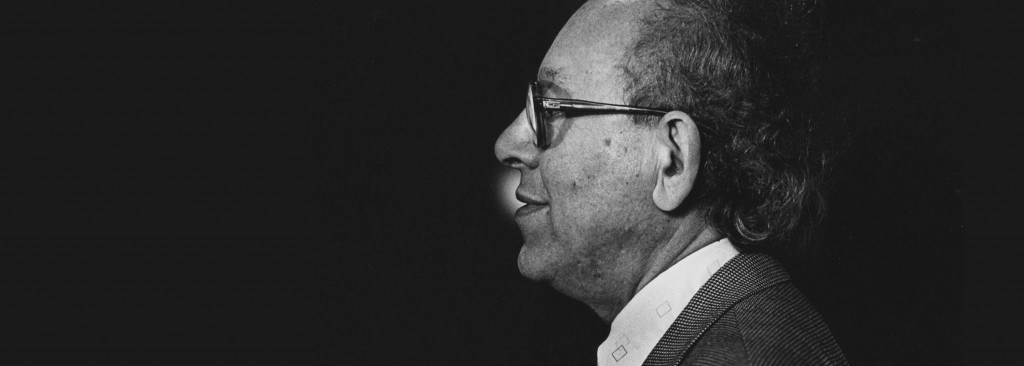 Courtesy of the Cinemathèque royale de Belgique
Courtesy of the Cinemathèque royale de Belgique
14:30
Portraits of Historical Programmers (2): Jacques Ledoux
Portraits de programmateurs historiques (2) : Jacques Ledoux
Although Jacques Ledoux was a legendary archivist, making the Royal Film Archive of Belgium (Cinémathèque royale de Belgique) one of the most important in the world, and professionalizing the film archive network during his 17 years as Secretary-General of FIAF, he was first and foremost an outstanding programmer at the Brussels Film Museum. This presentation proposes approaching this history in a chronological manner, with the help of numerous archive documents.
Si Jacques Ledoux fut un archiviste légendaire, faisant de la Cinémathèque royale de Belgique une des plus importantes au monde et professionnalisant, pendant les 17ans de son mandate de secrétaire généal de la FIAF, le réseau des archives de Film, ce fut d’abord, au Musée du cinéma de Bruxelles pour l’essentiel, un programmateur hors-pair. Cet exposé propose d’aborder cette histoire de manière chronologique et à l’aide de nombreux documents d’archives.
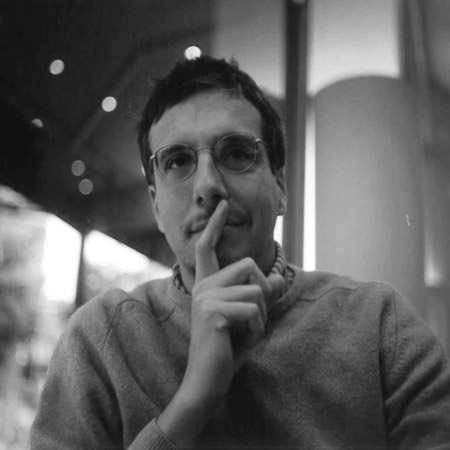
Christophe Piette
Christophe Piette is a programmer at CINEMATEK, the Royal Film Archive of Belgium. Within regular programming, he is particularly concerned with silent films and the ‘Âge d’Or’ programme of experimental cinema. He recently organized two exhibitions devoted to historical figures of his institution, the pianist Fernand Schirren and Curator Jacques Ledoux.
Christophe Piette est programmateur à CINEMATEK, la Cinémathèque royale de Belgique. À l’intérieur de la programmation régulière, il s’occupe plus particulièrement du cinéma muet et du programme Âge d’Or de films expérimentaux. Il a organisé récemment deux expositions consacrées à des figures historiques de cette institution, le pianiste Fernand Schirren et le conservateur Jacques Ledoux.
 PACC Head Matěj Strnad at the 2020 FIAF Programming Winter School
PACC Head Matěj Strnad at the 2020 FIAF Programming Winter School
15:00
PACC's Practical and Troubleshooting Session
Conseils pratiques et "boite à outil" de programmation, par la PACC
Drawing on their own experiences as archivists, curators, and programmers, members of FIAF’s Programming and Access to Collections Commission (PACC) and invited guests will present some of the practical issues and problems encountered when programming heritage films for contemporary audiences. The session will also serve as a platform to discuss and troubleshoot some of the issues brought to the table by the Winter School participants, drawn from their own day-to-day work in the field. In preparation for this, a questionnaire will be circulated among the participants in advance of the Winter School. The session will be presented and moderated by Oliver Hanley (PACC) and Eva Hielscher (DFF), artistic directors of the Bonn International Silent Film Festival, with additional input and contributions from Commission head Matěj Strnad (Národní filmový archiv / PACC) and member Brian Meacham (Yale Film Archive / PACC).
S'appuyant sur leurs propres expériences en tant qu'archivistes, conservateurs et programmateurs, les membres de la Commission Programmation et Accès aux Collections (PACC) de la FIAF et ses invités présenteront certaines des questions et problèmes pratiques rencontrés lors de la programmation de films du patrimoine pour un public contemporain. La session servira également de plate-forme pour discuter et résoudre certains des problèmes soulevés par les participants de la Winter School, tirés de leur propre travail quotidien sur le terrain. Pour ce faire, un questionnaire sera distribué aux participants avant la Winter School. La session sera présentée et modérée par Oliver Hanley (PACC) et Eva Hielscher, directeurs artistiques du Festival international du film muet de Bonn, avec des contributions du responsable de la commission Matěj Strnad (Národní filmovy archiv / PACC) et de son membre Brian Meacham (Yale Film Archive / PACC).

Oliver Hanley
Oliver Hanley is a film preservationist, curator, and researcher whose work focuses mainly on popular German silent (and early sound) cinema and “non-canonical” film histories. A graduate of the University of Amsterdam's Preservation and Presentation of the Moving Image professional M.A. programme, he has worked at the Deutsche Kinemathek in Berlin (2008-2011), the Austrian Film Museum in Vienna (2011-2016), and the Film University Babelsberg KONRAD WOLF (2016-2021) in Potsdam, where he currently resides. He became a member of FIAF's Programming and Access to Collections Commission (PACC) in 2018, having previously served as a corresponding member since 2016. In April 2021, he was appointed co-artistic director of the Bonn International Silent Film Festival alongside Eva Hielscher.
Oliver Hanley est un spécialiste de la préservation des films, un conservateur et un chercheur dont le travail se concentre principalement sur le cinéma populaire allemand muet (et les premiers films sonores) et sur les histoires de films "non canoniques". Diplômé du programme de Master professionnel « Preservation and Presentation of the Moving Image » de l'Université d'Amsterdam, il a travaillé à la Deutsche Kinemathek de Berlin (2008-2011), au Musée du film autrichien de Vienne (2011-2016) et à l'Université du film Babelsberg KONRAD WOLF (2016-2021) à Potsdam, où il réside encore actuellement. Il est membre de la Commission de programmation et d'accès aux collections (PACC) de la FIAF depuis 2018, après en avoir été membre correspondant dès 2016. En avril 2021, il a été nommé codirecteur artistique du Festival international du film muet de Bonn aux côtés d'Eva Hielscher.
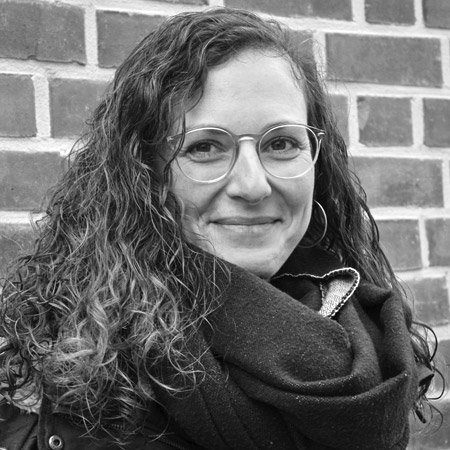
Eva Hielscher
Eva Hielscher is head of collections (non-film archive) at DFF – Deutsches Filminstitut & Filmmuseum and co-artistic director of the Bonn International Silent Film Festival. She has worked as a curator, film scholar, and moving image archivist in the Netherlands, Belgium, Switzerland, and Germany. She has curated film programmes for the Pordenone Silent Film Festival and Cinema Zuid in Antwerp, among others. In 2019 she orchestrated the exhibition “Color Mania – The Material of Color in Photography and Film” at Fotomuseum Winterthur, followed in 2021 by the show “Close-up. Hamburg’s Film and Cinema History” at Altonaer Museum.
Eva Hielscher est codirectrice artistique du Festival international du film muet de Bonn et, depuis janvier 2022, responsable des collections (archives non cinématographiques) au DFF - Deutsches Filminstitut & Filmmuseum. Elle a travaillé comme conservatrice, chercheuse et archiviste de l'image en mouvement aux Pays-Bas, en Belgique, en Suisse et en Allemagne. Elle a notamment conçu des programmes pour le festival du film muet de Pordenone et le Cinema Zuid d'Anvers. En 2019, elle a orchestré l'exposition "Color Mania - The Material of Color in Photography and Film" au Fotomuseum Winterthur, suivie en 2021 par l'exposition "Close-up. L'histoire des films et du cinéma à Hambourg" au musée Altonaer.
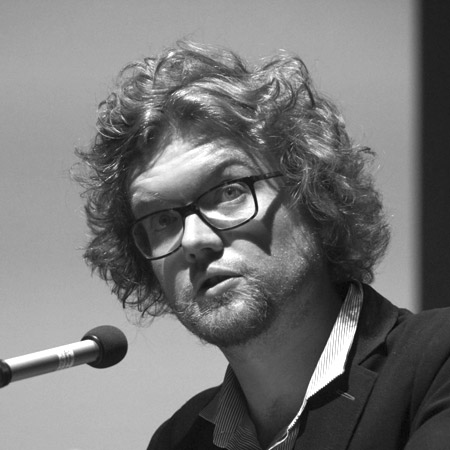
Matěj Strnad
Matěj Strnad is Head of Curators at the Národní filmový archiv, Prague, and Head of the FIAF Programming and Access to Collections Commission (PACC). He is a graduate of the Center for Audiovisual Studies at FAMU, Prague. In 2018 he coordinated the FIAF Symposium on Sharing, which took place as part of the 74th FIAF Congress in Prague. Currently he supervises major acquisition, restoration, and valorization projects, and is responsible for the institution's collection policy. Before working for the Národní filmový archiv, he was active as an editor, having co-edited a social sciences reader for film and media students. He also published, lectured, and consulted on issues of media art preservation and restoration.
Matěj Strnad est conservateur-en-chef à la Národní filmový archiv, Prague, et chef de la Commission de programmation et d'accès aux collections (PACC) de la FIAF. Il est diplômé du Centre d'études audiovisuelles de la FAMU, à Prague. En 2018, il a coordonné le symposium de la FIAF sur le thème du partage, qui s'est déroulé dans le cadre du 74e congrès de la FIAF à Prague. Il supervise actuellement les grands projets d'acquisition, de restauration et de valorisation et est responsable de la politique de collection de l'institution. Avant de travailler pour la Národní filmový archiv, il était actif en tant qu'éditeur, ayant coédité un lecteur de sciences sociales pour les étudiants en cinéma et en médias. Il a également publié, enseigné et consulté sur les questions de préservation et de restauration des arts médiatiques.
Brian Meacham
See biography above / Voir biographie plus haut
16:30
Coffee Break
Pause café

17:00
Filmmakers as Programmers (2): LaCinetek, a VOD Platform Fueled by Filmmakers' Cinephilia
Cinéastes programmateurs (2): LaCinetek, une plateforme VOD nourrie par la cinéphilie de réalisateurs/trices
LaCinetek is a video-on-demand website, founded by three film directors in 2015: Pascale Ferran, Cédric Klapisch, and Laurent Cantet. It is dedicated to the greatest films of the 20th century, chosen and presented by directors from all over the world. Each director associated with LaCinetek has compiled a list of his or her 50 favourite films – their ideal film library. The catalogue is the sum of all these lists, and is expanded every month with new acquisitions and the list of an associate director. LaCinetek's objective is to offer films that would not otherwise be visible on the Internet and make them accessible legally, and to convey their passion for cinema, contrary to any algorithm. Currently, nearly 1,900 key films from the 20th century up to and including 2005 are available, of which more than 750 were unreleased on VOD at the time they were put online. In addition to the transmission of films by the associated directors, exclusive bonuses and "archive" bonuses are available free of charge, in an effort to transmit and educate people about the moving image. This presentation at the FIAF Winter School will be an opportunity to go into more detail about our editorial and programming practices.
LaCinetek est un site de vidéo à la demande, fondé par trois réalisateurs en 2015 : Pascale Ferran, Cédric Klapisch et Laurent Cantet. Il est consacré aux plus grands films du XXe siècle, choisis et présentés par des réalisatrices et réalisateurs du monde entier. Chaque réalisateur associé à LaCinetek a composé la liste de ses 50 films de chevet, sa cinémathèque idéale. C’est l’addition de toutes ces listes qui constitue le catalogue, qui s’agrandit tous les mois grâce à de nouvelles acquisitions et à la liste d’un réalisateur associé. L’objectif de LaCinetek est de rendre accessible sur Internet, dans le cadre d’une offre légale, des films qui ne seraient pas visibles autrement et de transmettre la passion du cinéma, à rebours de tout algorithme. Actuellement, près de 1 900 films décisifs du XXe siècle et jusqu’à 2005 inclus sont disponibles, dont plus de 750 étaient inédits en VOD au moment de leur mise en ligne. Outre les listes des films des réalisateurs associés, des bonus exclusifs et des bonus “archives” sont accessibles gratuitement, dans une démarche de transmission et d’éducation à l’image. L'intervention à la Winter School sera l'occasion de revenir plus en détail sur nos pratiques éditoriales et de programmation.
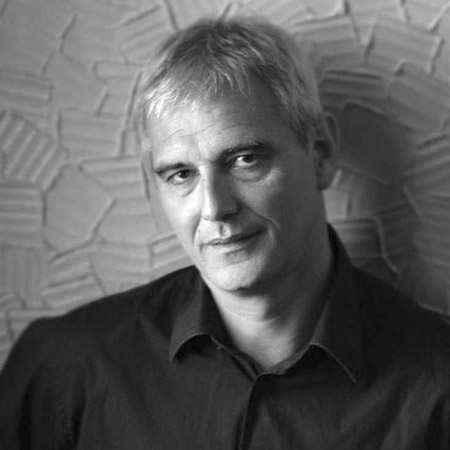
Laurent Cantet & Jean-Baptiste Viaud
Laurent Cantet is one of the three founding directors of LaCinetek, along with Pascale Ferran and Cédric Klapisch. Trained at IDHEC (Fémis), one of his first short films, Tous à la manif, won the Jean Vigo Prize in 1995. His first feature, Ressources humaines (2000), won the César for Best First Film. Then came Entre les murs, awarded the Palme d'or at Cannes in 2008. After his first film shot abroad, Foxfire: Confessions of a Girl Gang (2012), he shot L'Atelier (2017), presented at “Un Certain Regard” in Cannes in 2017. His latest film is Arthur Rambo (2021).
Laurent Cantet est l'un des trois réalisateurs fondateurs de LaCinetek, auprès de Pascale Ferran et de Cédric Klapisch. Formé à l'IDHEC (Fémis), l'un de ses premiers courts-métrages, Tous à la manif, emporte le Prix Jean Vigo en 1995. Ressources humaines (2000), son premier long, obtient le César du Meilleur Premier Film. Puis la consécration vient avec Entre les murs, Palme d’or à Cannes en 2008. Après son premier film tourné à l’étranger, Foxfire : Confessions d’un gang de filles (2012), il tourne L’Atelier (2017), présenté à Un Certain Regard à Cannes en 2017. Son dernier film est Arthur Rambo (2021).
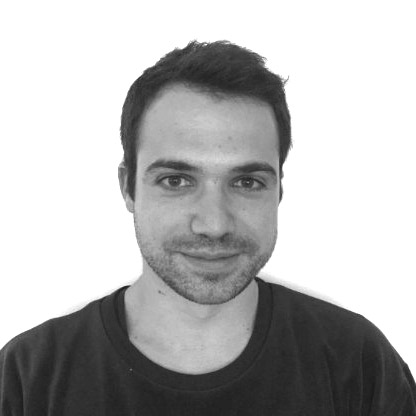
Jean-Baptiste Viaud is the Managing Director of La Cinémathèque des Réalisateurs, the association that promotes and publishes the video-on-demand platform LaCinetek. He is the link with the film directors associated with the platform, and participates in the site’s editorial policy, notably regarding the "Selection of the Month". Previously a journalist in cinema and international politics, he is currently an alternate member of the CNC’s Commission for World Cinema Support.
Jean-Baptiste Viaud est le Délégué général de La Cinémathèque des Réalisateurs, l'association qui porte et édite la plateforme de vidéo à la demande LaCinetek. Il fait le lien avec les réalisatrices et réalisateurs associé.e.s et participe à la ligne éditoriale du site, notamment autour de la "Sélection du mois". Auparavant journaliste en cinéma et politique internationale, il est actuellement membre suppléant de la Commission de l'Aide aux cinémas du monde du CNC.
